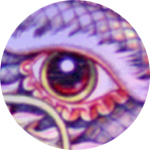Feds bust counterfeit goods pipeline to S.F.
Will Kane, Chronicle Staff Writer
Wednesday, August 4, 2010
(08-03) 18:47 PDT SAN FRANCISCO -- Yarin Molad, the owner of Traveler Photo and Electronics in bustling Fisherman's Wharf, said he had known for years that the purses, shoes and sunglasses sold to tourists in the store next to his were not really made by big-name companies like Louis Vuitton or Dolce & Gabbana.
The products, he said, had the same logo and fabric patterns as the famed brands but lacked the three-figure prices. The store was difficult to compete with, and cast a light of suspicion on its neighbors.
"Customers would come into my shop, look at my Ray-Bans and wonder if they were real," said Molad.
On Tuesday, the small store Molad referred to - New CWK Gift - was closed. Instead of colorful wares on the sidewalk, the business had white curtains and a "No trespassing" sign in its window.
Federal authorities recently raided New CWK Gift and seven other shops in Fisherman's Wharf. On Tuesday, they announced the seizure of more than 200,000 counterfeit retail items valued at $100 million - if they were genuine, that is - during what they called the largest-ever bust of retail counterfeiters on the West Coast.
Prosecutors charged 11 people with conspiracy, smuggling goods into the United States and trafficking in counterfeit goods, said U.S. Attorney Joseph Russoniello. Ten of those indicted were residents of San Francisco, he said.
If convicted, they could face up to 35 years in prison. Some could also face deportation to China depending on their immigration status, he said.
"The significant impact of trafficking in such merchandise on the American economy should be obvious," Russoniello said at a press conference at Crissy Field, flanked by agents from Immigration and Customs Enforcement and Customs and Border Protection.
The network targeted by the agencies is accused of importing goods from China that imitated 70 national and international brands, including Nike, Burberry, Kate Spade and Armani. The stores that allegedly sold the items - all of which were shuttered - include L&J Fashion, New Life Gift, C&K Gifts and La Bella Boutique.
The operation was first discovered in December 2007, authorities said, when customs officials seized a container at the Port of Oakland stuffed with 50,000 counterfeit designer accessories.
Multiple purchases
Investigators then conducted a number of sting operations at the stores. Time and time again, Russoniello said, they purchased counterfeit items.
While significant, the seizure represents a small slice of the market in sham goods, which some estimate is as large as 7 to 8 percent of the world's retail economy, said Fred Felman, the chief marketing officer for MarkMonitor, a San Francisco firm that helps companies protect their brands.
"You look at this and you think it is just purses and sunglasses," he said. "And then you look at it with respect to the global economy, and it is something else."
Experts say counterfeiters, who exploit others' hard work and innovation, have grown as economies become more global and the Internet flourishes - dark corners and all - as a prime destination for shoppers.
The problem has hounded everyone from cigarette makers to the military. A report by the U.S. Department of Commerce in January 2010 found that 39 percent of electronics companies contracted by the Department of Defense encountered counterfeit electronics from subcontractors, more than doubling from 2005 to 2008.
The source is China
John Morton, the director of Immigration and Customs Enforcement, said Tuesday that counterfeiting "occurs in every facet of American industry and production." However, he said, most phony goods - from purses to pharmaceuticals - originate in China.
Immigration and Customs Enforcement launched a new unit to respond to counterfeiting last fall, and officials hope Tuesday's bust can be the first of many.
But there are two kinds of buyers of counterfeit goods: those who believe they are purchasing the real thing and those who understand they are getting a cheap knock-off that kind of looks like the real thing.
Lisa Taylor, a tourist visiting Fisherman's Wharf from Alabama, said Tuesday that she knowingly purchased counterfeit sunglasses in New York City's Times Square recently.
"I don't think it is a threat," she said. "It is part of the culture in these areas."
E-mail Will Kane at
wkane@sfchronicle.com.




 Reply With Quote
Reply With Quote